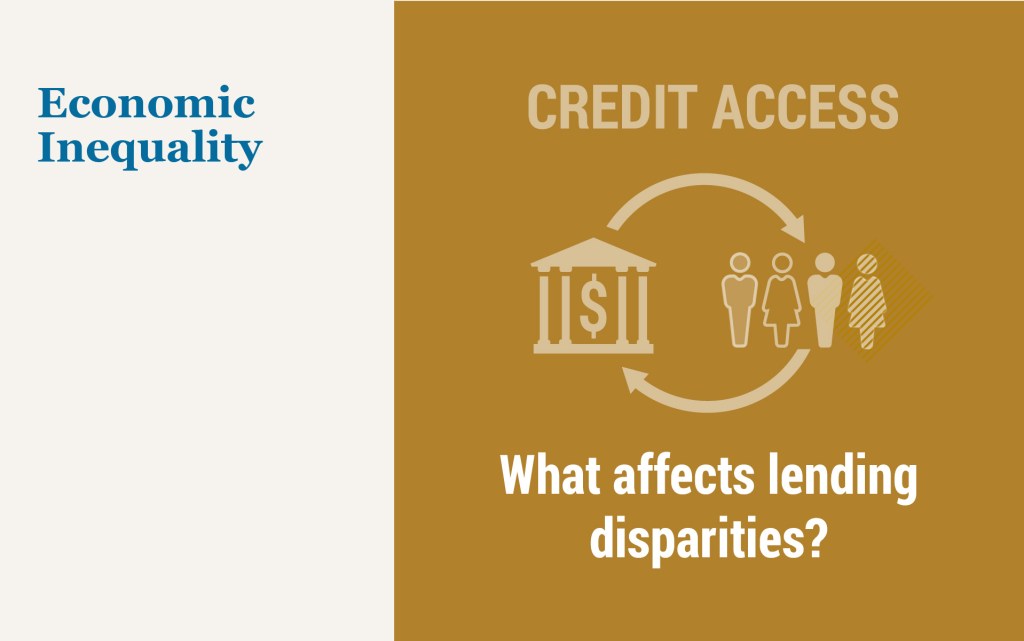The Growing Risk of Spillovers and Spillbacks in the Bank‑NBFI Nexus

Nonbank financial institutions (NBFIs) are growing, but banks support that growth via funding and liquidity insurance. The transformation of activities and risks from banks to a bank-NBFI nexus may have benefits in normal states of the world, as it may result in overall growth in (especially, credit) markets and widen access to a wide range of financial services, but the system may be disproportionately exposed to financial and economic instability when aggregate tail risk materializes. In this post, we consider the systemic implications of the observed build-up of bank-NBFI connections associated with the growth of NBFIs.
Banks and Nonbanks Are Not Separate, but Interwoven

In our previous post, we documented the significant growth of nonbank financial institutions (NBFIs) over the past decade, but also argued for and showed evidence of NBFIs’ dependence on banks for funding and liquidity support. In this post, we explain that the observed growth of NBFIs reflects banks optimally changing their business models in response to factors such as regulation, rather than banks stepping away from lending and risky activities and being substituted by NBFIs. The enduring bank-NBFI nexus is best understood as an ever-evolving transformation of risks that were hitherto with banks but are now being repackaged between banks and NBFIs.
The Changing Landscape of Corporate Credit

Firms’ access to credit is a crucial determinant of their investment, employment, and overall growth decisions. While we usually think of their ability to borrow as determined by aggregate credit conditions, in reality firms have a number of markets where they can borrow, and conditions can vary across those markets. In this post, we investigate how the composition of debt instruments on U.S. firms’ balance sheets has evolved over the last twenty years.
Can I Speak to Your Supervisor? The Importance of Bank Supervision

In March of 2023, the U.S. banking industry experienced a period of significant turmoil involving runs on several banks and heightened concerns about contagion. While many factors contributed to these events—including poor risk management, lapses in firm governance, outsized exposures to interest rate risk, and unrecognized vulnerabilities from interconnected depositor bases, the role of bank supervisors came under particular scrutiny. Questions were raised about why supervisors did not intervene more forcefully before problems arose. In response, supervisory agencies, including the Federal Reserve and Federal Deposit Insurance Corporation, commissioned reviews that examined how supervisors’ actions might have contributed to, or mitigated, the failures. The reviews highlighted the important role that bank supervisors can play in fostering a stable banking system. In this post, we draw on our recent paper providing a critical review and summary of the empirical and theoretical literature on bank supervision to highlight what that literature tells us about the impact of supervision on supervised banks, on the banking industry and on the broader economy.
Internal Liquidity’s Value in a Financial Crisis

A classic question for U.S. financial firms is whether to organize themselves as entities that are affiliated with a bank-holding company (BHC). This affiliation brings benefits, such as access to liquidity from other affiliated entities, as well as costs, particularly a larger regulatory burden. This post highlights the results from a recent Staff Report that sheds light on this tradeoff. This work uses confidential data on the population of broker-dealers to study the benefits of being affiliated with a BHC, with a focus on the global financial crisis (GFC). The analysis reveals that affiliation with a BHC makes broker-dealers more resilient to the aggregate liquidity shocks that prevailed during the GFC. This results in these broker-dealers being more willing to hold riskier securities on their balance sheet relative to broker-dealers that are not affiliated with a BHC.
Learning by Bouncing: Overdraft Experience and Salience

Overdraft credit, when banks and credit unions allow customers to spend more than their checking account holds, has many critics. One fundamental concern is whether overdrafts are salient—whether account holders know how often they overdraw and how much it costs them. To shed light on this question, we asked participants in the New York Fed’s Survey of Consumer Expectations about their experience with and knowledge of their banks’ overdraft programs. The large majority knew how often they overdrew their account and by how much. Their overdraft experience, we find, begets knowledge; of respondents who overdrew their account in the previous year, 84 percent knew the fee they were charged, roughly twice the share for other respondents. However, even experienced overdrafters were relatively unaware of other overdraft terms and practices, such as the maximum overdraft allowed or whether their financial institution processed larger transactions first.
Deposits and the March 2023 Banking Crisis—A Retrospective

In this post, we evaluate how deposits have evolved over the latter portion of the current monetary policy tightening cycle. We find that while deposit betas have continued to rise, they did not accelerate following the bank runs in March 2023. In addition, while overall deposit funding has remained stable, we find that the banks most affected by the March 2023 events are offering higher deposit rates and are growing their deposit funding relative to the broader banking industry.
An Overlooked Factor in Banks’ Lending to Minorities

In the second quarter of 2022, the homeownership rate for white households was 75 percent, compared to 45 percent for Black households and 48 percent for Hispanic households. One reason for these differences, virtually unchanged in the last few decades, is uneven access to credit. Studies have documented that minorities are more likely to be denied credit, pay higher rates, be charged higher fees, and face longer turnaround times compared to similar non-minority borrowers. In this post, which is based on a related Staff Report, we show that banks vary substantially in their lending to minorities, and we document an overlooked factor in this difference—the inequality aversion of banks’ stakeholders.
Where Is R‑Star and the End of the Refi Boom: The Top 5 Posts of 2023

The topics covered on Liberty Street Economics in 2023 hit many themes, reflecting the range of research interests of the more than sixty staff economists at the New York Fed and their coauthors. We published 122 posts this year, exploring important subjects such as equitable growth and the economic impacts of extreme weather, alongside our deep and long-standing coverage of topics like inflation, banking system vulnerability, international economics, and monetary policy effects. As we close out the year, we’re taking a look back at the top five posts. See you again in 2024.
Does Trade Uncertainty Affect Bank Lending?

The recent era of global trade expansion is over. Faced with increased geopolitical risk, fragile foreign supply chains, and uncertainties in the international trade environment, firms are postponing entry into foreign markets and pulling back from foreign activities (IMF 2023). Besides its direct effects on real activity, the recent rise in trade uncertainty has potentially important implications for the financial sector. This post describes how the lending activities of U.S. banks were affected by the rise in trade uncertainty during the 2018-19 “trade war.” In particular, banks that were more exposed to trade uncertainty contracted lending to all of their domestic nonfinancial business borrowers, regardless of whether these borrowers were facing high or low uncertainty themselves. Furthermore, banks’ lending strategies exhibited the type of “wait-and-see” behavior usually found in corporate firms facing investment decisions under uncertainty, and the lending contraction was larger for those banks that were more financially constrained.














 RSS Feed
RSS Feed Follow Liberty Street Economics
Follow Liberty Street Economics